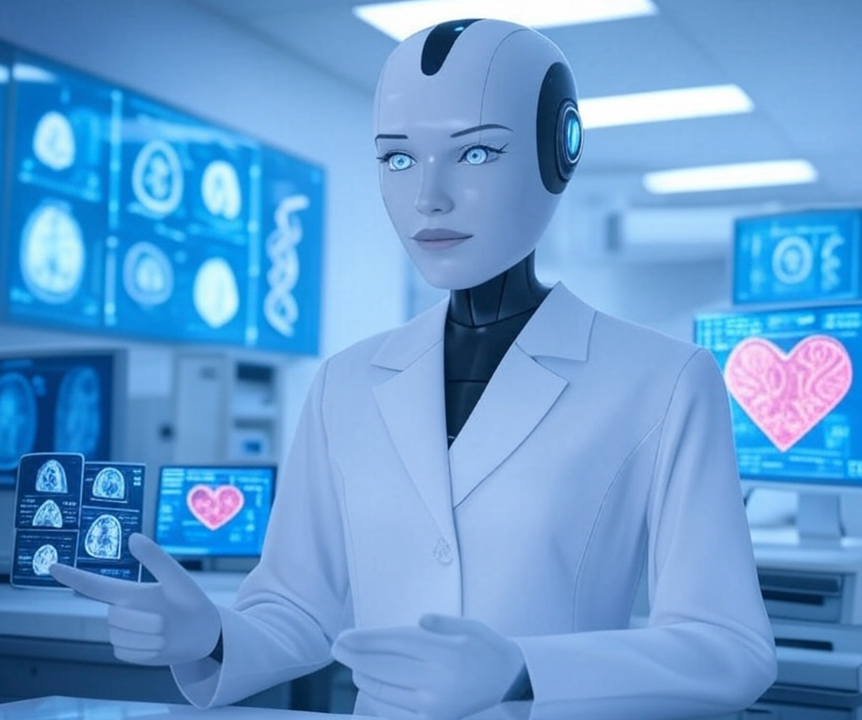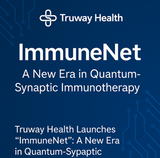The Role of AI in Early Disease Detection: What Patients Need to Know
-
Cancer Detection: AI tools can analyze mammograms or CT scans to identify subtle signs of breast, lung, or skin cancer with precision rivaling or surpassing human experts.
-
Heart Disease: AI algorithms can predict cardiovascular risks by examining ECGs, blood tests, or even lifestyle data from smartwatches.
-
Neurological Conditions: AI is being used to detect early signs of Alzheimer’s or Parkinson’s through speech patterns, eye movements, or brain imaging.
-
Unmatched Precision
AI can analyze thousands of data points in seconds, reducing human error and catching subtle signs that might be missed. For instance, Google Health’s AI model for diabetic retinopathy screening achieved a 90% accuracy rate in trials, outperforming many specialists. -
Personalized Risk Assessment
By combining your medical history, genetics, and lifestyle data, AI can create tailored risk profiles, helping doctors recommend preventive measures specific to you. -
Accessibility and Speed
AI-powered tools, like those used in telehealth or at-home diagnostics, make screening more accessible, especially for rural or underserved communities. Results are often available faster, cutting down wait times. -
Cost Savings
Early detection reduces the need for expensive treatments down the line. A 2024 study estimated that AI-driven early cancer detection could save the U.S. healthcare system billions annually by reducing advanced-stage cases.
-
AI Complements, Not Replaces, Doctors
AI is a tool that enhances your doctor’s expertise. At Truway Health, our providers use AI insights alongside their clinical judgment to deliver personalized care. -
Data Privacy Is Critical
AI relies on data, so it’s essential to choose providers who prioritize security. Truway Health uses state-of-the-art encryption and complies with HIPAA to protect your information. -
Not All AI Is Equal
The effectiveness of AI depends on the quality of its algorithms and training data. Ask your provider about the tools they use and their track record. -
You Can Take Action
Many AI tools are patient-friendly. For example, wearable devices like Fitbit or Apple Watch can feed data to AI systems for real-time health monitoring. Talk to your Truway Health provider about integrating these into your care plan.
-
Liquid Biopsies: AI analyzes blood samples to detect cancer DNA, offering a non-invasive screening option.
-
Predictive Analytics: AI models forecast disease risks years in advance based on lifestyle and genetic data.
-
Global Impact: AI is helping low-resource regions access high-quality diagnostics through mobile apps and cloud-based platforms.
Truway Health News & Insights
Truway Health Launches Innovative In-Vitro Cryo-Therapeutic Clinical Study
Advancing Cellular Preservation, Precision Therapy, and Translational Science Truway Health, Inc. is...
Everyday Stress, Handled: Practical Ways to Feel More Steady Day to Day
Everyday Stress, Handled: Practical Ways to Feel More Steady Day to Day Everyday stress is the mind-...
Creating Your Personalized Health Roadmap: Break Bad Habits and Build Long-Term Well-Being
Creating Your Personalized Health Roadmap: Break Bad Habits and Build Long-Term Well-Being Improving...
Breathe, Refuel, Recharge: Finding Your Daily Balance
Written by Perry JohanssenPublished and Edited by Truway Health Life rarely slows down on its own. B...
Truway Health Launches “ImmuneNet”: A New Era in Quantum-Synaptic Immunotherapy
Reimagining How Immunity Can Be Understood and Guided At Truway Health, innovation never sleeps.Toda...
Announcing the HEALTH Trial: Humanoid Evaluation and Learning in Healthcare
Published by Truway Health, Inc.Principal Investigator: Gavin SolomonClinicalTrials.gov Identifier:...







